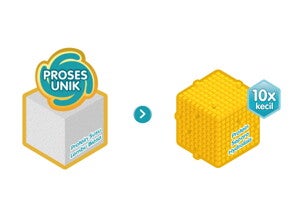
Is Your Little One Vomitting? Learn Why and How to Handle It
In general, little one vomiting will freak you and your partner out. When you see your little one throw up, it’ll send you into panic mode and you’ll be thinking about calling every emergency service available in the country.
In general, little one vomiting will freak you and your partner out. When you see your little one throw up, it’ll send you into panic mode and you’ll be thinking about calling every emergency service available in the country. This is especially so for the couple with their first child. However, hold your horses. Your little one vomiting may not be the end of the world just yet. Here’s what to expect, and how to handle your little one vomiting.
Is it vomiting or posseting?
As you and your partner will soon find out, your little one will throw up in small amounts once in a while, with milk sometimes, when they burp. Although messy and disgusting to the non-parents, it’s a normal process known as posseting. Vomiting, on the other hand, is when the body is trying to get rid of all the stuff in the tummy, and this can be in larger amounts. Vomiting can be caused by various reasons.
Your child is getting used to new food
During the first few months, your child will still be adapting to life outside the womb. And this includes getting used to breastfeeding. If your little one is vomiting during the first few months, it may be reflux, or gastro-oesophageal reflux (GOR). What happens is when the stomach is full, food and stomach acid will go up the other way. This is because the muscular valve which keeps food down isn’t fully developed yet.
Overfeeding of formulated milk
Too much milk during a single feeding session may cause your child to throw up.
Wrong feeding techniques
The wrong feeding techniques may cause your child to take in more air, which in turn leads to a bloated tummy. This then causes your child to burp and throw up more often.
Coughing or other infections
On a more serious side, coughing, lung or throat infections can cause your child to throw up. There are little ones who can choke on their own vomit, which can cause breathing problems.
Among the systemic infections which can affect your child’s entire body are urine, blood and brain infections. Gastritis and enteritis are also causes of little one vomiting.
Most causes of little one vomiting have solutions, and you can help your little one go through the tough times.
Burp your little one after feeding
If your little one is vomiting because of a bloated stomach, you can burp your little one after feeding him or her. Burping indicates that the milk safely in the stomach, not on the way back up. This may help reduce instances of vomiting.
Change your little one's milk formula
If your child is on formulated milk, and your healthcare professional suspects an allergy, you may want to change your milk. You may also want to change your child’s usual diet for a week or two.
Massages
Give your little one gentle massages to help reduce the risk of reflux and bloating. Massages not only help calm your child down but eases digestion and strengthens the muscles.
Proper feeding methods
If you are breastfeeding, have him feed on one breast, and express the other one. When you feed your child milk from the bottle, limit each session to about half an hour. Have about two hours in between feeding sessions to allow your child to digest the milk before the next session.
Do take note if your child is vomiting frequently and in large amounts; this can cause dehydration in your child’s body. It could also be an indication of something more serious.
Can my little one's vomiting be something serious?
While we’ve mentioned above that you normally shouldn’t be too concerned if your child is simply burping out the excess milk, there are times where you should think about seeing a healthcare professional. If your child’s vomit has bile or blood, go straight to the hospital! You need to speak to a healthcare professional as soon as possible for diagnosis and treatment.
Taking care of your child is no easy task, especially if he or she seems to have strange illnesses you can’t explain. However, his or her current health sets the foundation for a healthy growth, so it’s worth it to ensure your child is as healthy as possible. If you are unsure of anything, your healthcare professional is just a ring away.


























